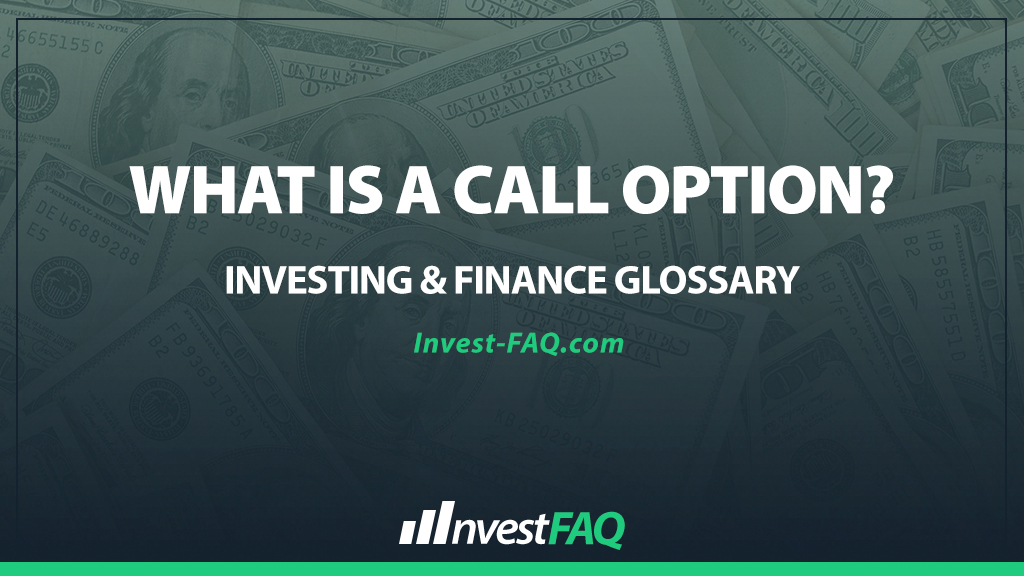
Call Option
Contents
A call option is a financial contract that gives the buyer the right, but not the obligation, to buy a specific amount of an underlying asset, such as shares of stock, at a predetermined price (the strike price) within a specified time frame. The seller of the call option is obligated to sell the asset at the strike price if the buyer decides to exercise the option.
In business, call options are used for various strategic purposes, including hedging risk, speculating on future price movements of assets, and leveraging investment positions.
Companies might use call options to secure a future supply of a critical asset at a known price, while investors might use them to gain exposure to the potential upside of a stock’s price movement without the full cost of owning the stock outright.
Example of a Call Option
Imagine “TechGiant Inc.” is trading at $150 per share, and an investor believes its price will rise in the next three months. The investor buys a call option with a strike price of $160, expiring in three months, for a premium of $5 per share.
If, after three months, TechGiant Inc.’s stock price has risen to $180 per share, the investor can exercise the option to buy shares at $160, despite the market price being $180.
Initial Investment: The investor pays a premium of $5 per share, totaling $500 for 100 shares.
Exercise of Option: By exercising the option, the investor buys 100 shares at $160 each, costing $16,000.
Profit: Selling the shares at the market price of $180, the total revenue is $18,000. After subtracting the cost of shares ($16,000) and the initial premium paid ($500), the net profit is $1,500.
This example demonstrates how call options can be used to speculate on the appreciation of a stock’s price.
The investor leverages a relatively small initial investment (the premium) to enjoy gains from the increase in the stock’s price, significantly amplifying the return on investment.
However, if the stock had not exceeded the strike price by the expiration date, the investor would have lost the premium paid, showcasing the high-risk, high-reward nature of options trading.
Significance for Investing & Finance
The accounting for call options involves recognizing premiums paid or received and any gains or losses from exercising the option or its expiration. The significance in accounting includes:
Risk Management: Call options can be an effective way for businesses to manage price risk related to their operations or investment portfolios.
Financial Strategy: Options provide a way to leverage financial strategies without the need for a large initial outlay of capital, offering flexibility in capital allocation.
Disclosure Requirements: Companies must disclose significant derivatives positions, including call options, in their financial statements, ensuring transparency about their risk exposure and financial strategies.
Tax Implications: The premium paid or received and gains or losses from options trading have tax implications that must be accurately accounted for in financial reporting.
In summary, call options are powerful financial instruments that offer businesses and investors alike a mechanism to hedge, speculate, or leverage positions with a defined risk profile. Accurate accounting and reporting of these instruments are crucial for reflecting their impact on financial statements and for strategic financial management.
FAQ
What happens to a call option if the stock price exceeds the strike price before expiration?
If the stock price exceeds the strike price before the expiration of a call option, the option is considered “in the money,” and the holder may either exercise the option to buy the stock at the lower strike price for a profit or sell the option itself for its increased premium value.
Can you sell a call option before it reaches its expiration date, and what are the implications?
Yes, you can sell a call option before it reaches its expiration date; doing so allows the option holder to realize the option’s current premium value, which may result in a profit or loss depending on the option’s premium at the time of sale compared to the initial purchase price.
The volatility of the underlying asset increases the premium of a call option because higher volatility raises the probability of the option becoming “in the money,” thereby increasing its potential value to buyers.
What are the tax implications for an investor who exercises a call option?
When an investor exercises a call option, the purchase of the underlying asset at the strike price is considered a taxable event; the cost basis of the asset includes the strike price plus the premium paid, affecting the calculation of capital gains or losses when the asset is eventually sold.
